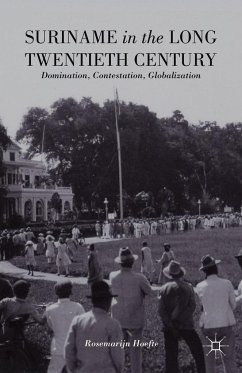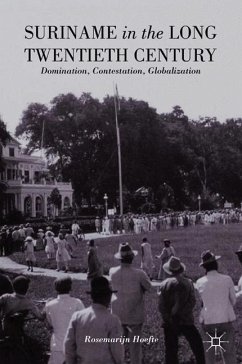
Exploring the Decolonial Imaginary
Four Transnational Lives
Versandkostenfrei!
Versandfertig in 6-10 Tagen
38,99 €
inkl. MwSt.
Weitere Ausgaben:

PAYBACK Punkte
19 °P sammeln!
This study explores two categories-empire and citizenship-that historians usually study separately. It does so with a unifying focus on racialization in the lives of outstanding women whose careers crossed national borders between 1880 and 1965. It puts an individual, intellectual, and female face on transnational phenomena.












